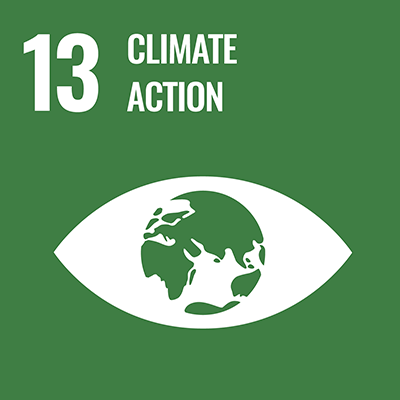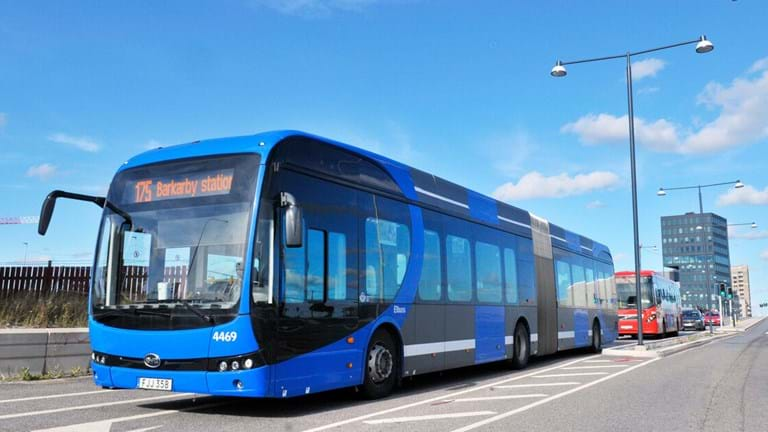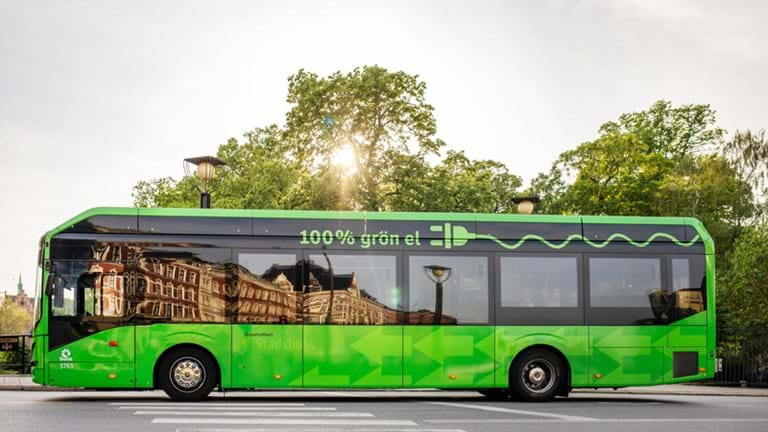Planet
As transportation accounts for a large share of CO2 emissions or greenhouse gas emissions in the Nordic Region, the transition to more public transport plays an important part in reaching the climate targets. Nobina contributes to this every day by making public transport more efficient and accessible, but also by working to achieve our ambitious climate targets validated by the Science Based Targets initiative. Because while getting people to travel together has a major positive climate impact, we must continue to make sustainable investments that lead to the most efficient use of resources and the lowest possible emissions, across our entire operations.

Affordable and clean energy

Climate action
Global goals 12 and 7
Nobina’s contribution to the UN Sustainable Development Goals
Nobina contributes to goal 7 by constantly seeking solutions to increase our energy efficiency and by transitioning to renewable energy sources, both in the vehicle fleet and in our properties.
Within the scope of goal 13, Nobina contributes with what we do every day, as we provide millions of people an opportunity to travel together instead of travelling in individual cars. In turn, this also helps to reduce congestion and improve accessibility for other traffic, such as commercial vehicles and freight. Through the transition to electric vehicles and fossil-free fuels, we also play our part in reducing greenhouse gas emissions from fossil fuels in our own traffic.



